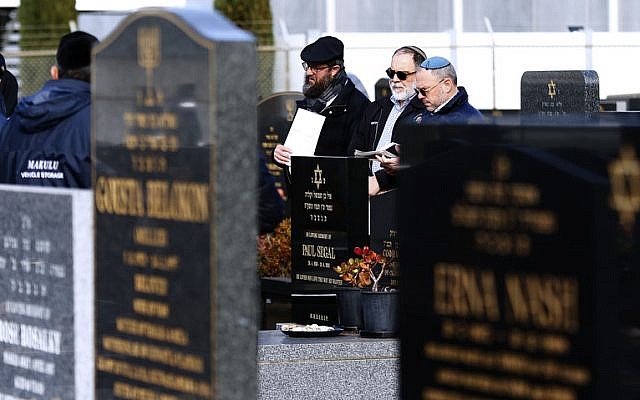‘He would have been happy’
WHEN Paul Segal passed away last year at the age of 88, there were no friends or family to mourn at his graveside.

WHEN Paul Segal passed away last year at the age of 88, there were no friends or family to mourn at his graveside.
However a notice posted by Melbourne Chevra Kadisha (MCK) CEO Fred Grossman exhorting members of the community to attend the funeral in an act of chesed shel emet (compassion for the departed), brought some 150 people to the ceremony.
To complete the process of honouring Segal’s memory, earlier this month Grossman asked that community members return to attend his consecration last Sunday, and while numbers were down, there were enough stalwarts for a minyan.
Although there were no family members present, around 15-20 members of the Jewish community gathered at the MCK cemetery in Springvale to consecrate his matzeva (gravestone) – in a final act of respect.
And two close friends who had not known of Segal’s passing at the time of his funeral were also there – Jane Burke and Helen Gradman, wife of the late violinist Morris Gradman; the Gradmans were both friends of Segal.
After the consecration, Grossman told The AJN, “The pleasing part is that even though this Jew chose to live his life alone, those who did know him ultimately said he would have been happy with the way he left this world.”
Rabbi Daniel Mirvis of Mizrachi, who had volunteered to conduct Segal’s funeral last year, recited tehilim with Rabbi Philip Heilbrunn, president of the Rabbinical Council of Victoria, who intoned Kel Malei Rachamim.
In his address, Rabbi Mirvis urged the community to look out for the lonely.
Sydney journalist Fiona Harari, who had viewed Grossman’s 2018 internet appeal to the community, later investigated strands of Segal’s life through documents she located in the National Archives of Australia and at welfare agencies.
On Sunday, she addressed the consecration of a private individual, born in Romania in 1930, fleeing to western Europe after World War II, and making it to Australia in 1950. Here he moved frequently between cities, jobs and personal relationships, focusing on his love of painting and music.
“The arts were Paul’s longest companion,” Harari said in her eulogy. “He was well read. And he was a talented and prolific artist … He enjoyed music, and was a member of a local Yiddish choir. He was also an accomplished violinist, and it was through music and the arts that he made some of his most enduring friendships.”
PETER KOHN

comments